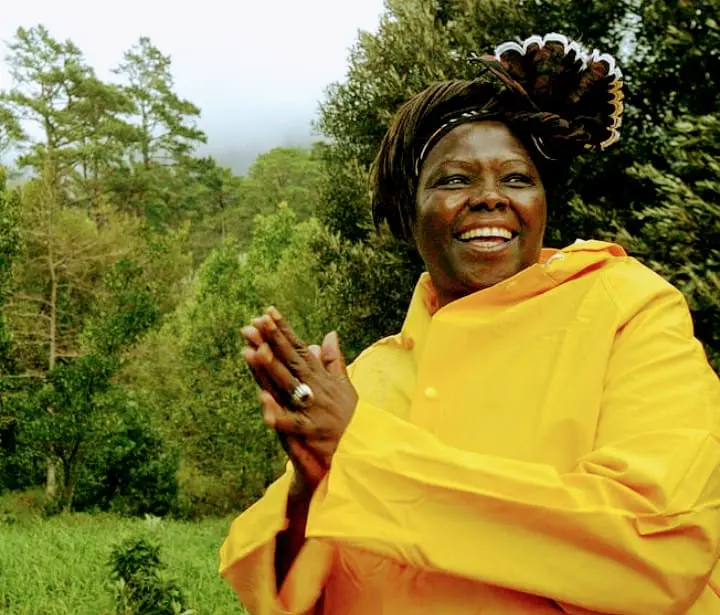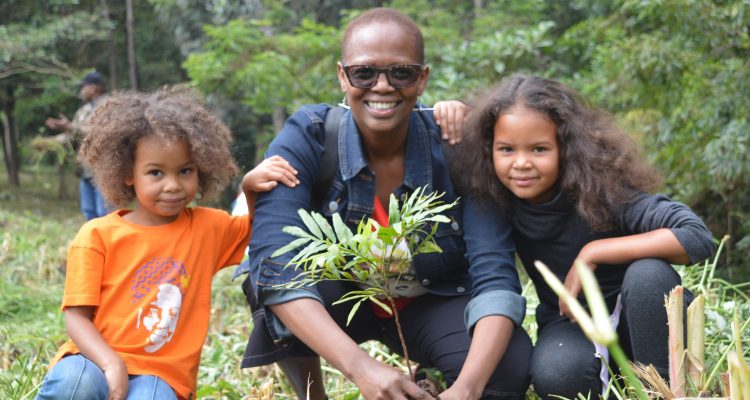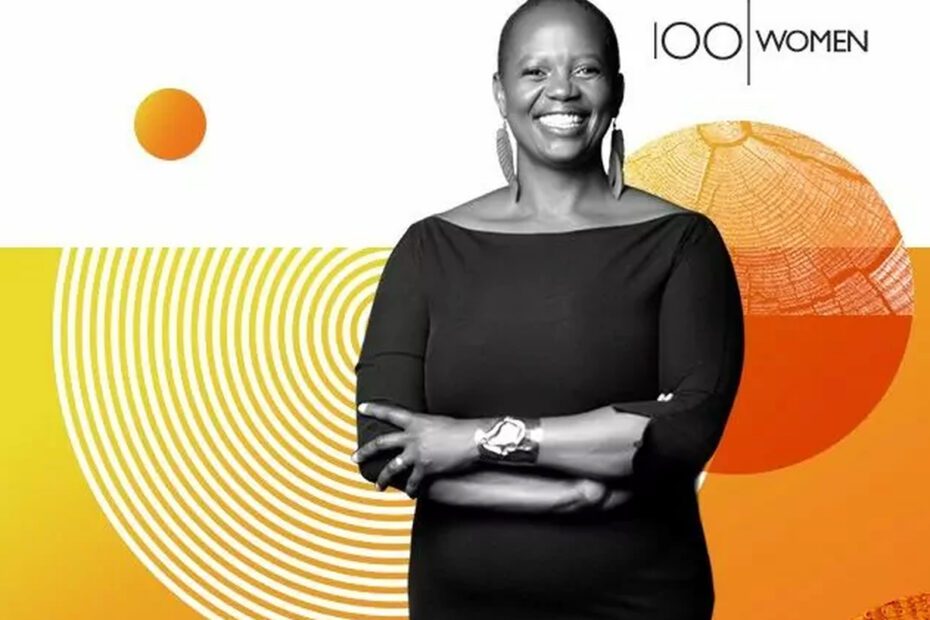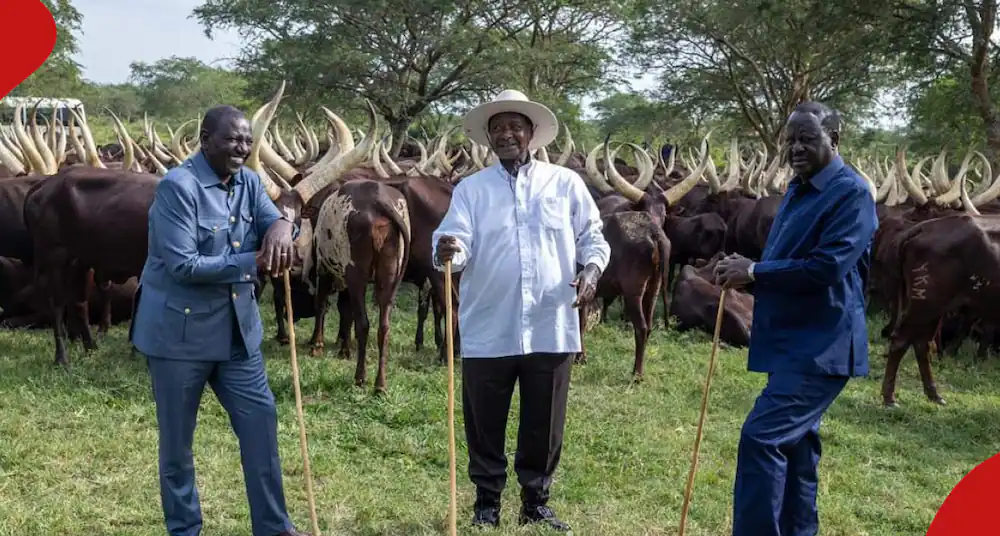Wanjira Mathai daughter of Wangari Maathai is continuing the Legacy of an Inspiring Environmentalist. She is the Managing Director for Africa and Global Partnerships at World Resources Institute (WRI), with an impressive track record. Formerly holding key roles such as Vice President and Regional Director for Africa and Co-chair of WRI’s Global Restoration Council, she’s been a pivotal figure in environmental initiatives. Additionally, she chaired the Wangari Maathai Foundation and the renowned Green Belt Movement in Kenya.
With over two decades of experience, Wanjira has been a catalyst for social and environmental transformation on local and global scales. Her strategic roles at Women Entrepreneurs in Renewables (wPOWER), the Wangari Maathai Foundation (WMF), and the Green Belt Movement (GBM) have amplified critical global issues like climate change, sustainable energy, and youth leadership.
Beyond her directorial role, Wanjira serves on prestigious boards including the World Agroforestry Center (ICRAF) and as a Leadership Council member of the Clean Cooking Alliance. She’s also part of the High-Level Group of the Africa-Europe Foundation. Her influence extends further as a Six Seconds EQ Practitioner in Kenya. She has been recognized as BBC100 Women 2023 for her initiatives in protecting the environment.
How Wagari Maathai influenced Wanjira Mathai
She is a mother of two daughters, positioning herself as a guardian of her late mother’s, the esteemed environmentalist Prof. Wangari Maathai, an enduring legacy. Having spent a remarkable 12 years working alongside her mother, she treasures the experience as an inspiration to follow in her footsteps.
With a professional background rooted in public health and business, her unexpected entry into her mother’s world came during a break when her mother beckoned, “Come and work with me, help me with this.”
Through this invitation, she found herself intricately woven into her mother’s life and became an integral part of the Green Belt Movement. She witnessed firsthand the results of passionate dedication, traits she has maintained throughout her career.
As the daughter of a committed advocate for the environment and marginalized communities, particularly women and youth, she witnessed her mother’s unwavering commitment to using nature to empower them.
Her mother passed away in September 2011. In tribute to her enduring legacy, they founded the Wangari Maathai Foundation. Holding the position of Chairperson within the Foundation, they focused on fostering youth leadership. Above all, exploring and understanding the profound message embodied by Wangari Maathai.
The Green Belt Movement

Continually inspired by the visionary inception of the Green Belt Movement 44 years ago, she reflects on her mother’s pioneering efforts alongside others in 1977. The Movement mobilizes local communities for landscape restoration. Today, amid the pressing challenge of climate change, it remains one of the most pivotal initiatives.
Recognizing its indispensable role, she emphasizes its significance not only in combating climate change but also in fostering youth employment, landscape restoration, reforestation, and creating diverse opportunities in ecotourism. This is done alongside harnessing forests for essentials like water, food, and medicine.
During the peak of the COVID-19 lockdowns in Nairobi, spaces like Karura Forest, Uhuru Park, and City Park emerged as vital sanctuaries.
Understanding the profound impact of nature on mental well-being, she insists on the significance of these havens. Notably, Karura Forest’s popularity during the pandemic stands as a testament to her mother’s enduring fight to preserve it three decades ago.
Therefore, the Green Belt movement is a testament to the visionary significance of environmental conservation, and a much-needed outlet for people during challenging times.
Wangari Maathai Foundation
Recognizing Africa as the continent with the planet’s youngest population, the Foundation holds a clear vision. The primary mission centers on equipping the young generation with a solid ethical framework and strong character traits.
Wangari Mathai insists that the institution has Prioritized character development and youth empowerment. And their interventions commence within school settings. Through meticulously crafted programs, they aim to nurture emotional intelligence and instil a deep sense of integrity among the children they serve.
Wanjira Mathai’s Role as a Vice-President and Regional Director for Africa at the World Resources Institute (WRI)
As a research organization, WRI collects evidence-data, and uses the knowledge to shape the trajectory of important functions they include;
- Urban development
- National nature prioritization
- Safeguarding of vulnerable populations.
Their strategic approach emphasizes an inclusive transformation for Africa’s people and landscapes. This is underpinned by a wealth of data advocating for investments in a sustainable, green future. Despite the challenges of a year-long lockdown, they’ve revitalized their strategy. They focus on fewer areas to streamline operations and create meaningful impactful change.
A critical aspect of this revised strategy involves addressing poverty and actively shaping livelihoods, particularly within rural communities and among the most marginalized.
“Data analysis reveals a pivotal statistic: approximately 80% of food consumption in many countries is cultivated by small-scale farmers, with around 70% of these individuals being women”.
Wanjira Mathai duing an Interview
This data underscores the importance of uplifting and empowering these segments of society for substantial, sustainable change.
World Resources Institute Initiatives
WRI performs critical initiatives, including their landscape watch project, dedicated to restoration efforts. This initiative revolves around empowering grassroots implementers with WRI’s tools and expertise. The institution also collaborates closely with governments to facilitate the planning, monitoring, and execution of restoration programs.
In tandem, they’re deeply involved in collaborative efforts with Planning departments and Finance ministries. Their focus lies in advocating for a low-carbon growth pathway by influencing decisions regarding energy, manufacturing, and infrastructure development.
They advocate for a shift in mindset to align with a new climate economy. While setting ambitious targets for 2050 is crucial, they stress the importance of establishing the correct trajectory now to realize the vision of a low-carbon future.
Wanjira Mathai’s voice in environmental, women’s and social justice movements

In an interview with Africa Renewable Energy magazine in 2021, Wanjira Mathai reflected on her potential contribution to affirming the critical role youth play in Africa’s transformation.
She has also insisted on the significance of landscape restoration towards solving Africa’s pressing climate crisis. Her dedication as a climate action advocate remains unwavering, especially concerning climate adaptation initiatives.
Moreover, she sees herself as a key advocate for Africa, advocating strongly for inclusive transformation. Recognizing the significance of inclusivity in infrastructure and overall development, she stresses the need to bridge gaps for sustainable progress within countries and across the continent.
Just like her mother, Wanjira Mathai will continue the legacy through her current inspiring Environmentalist projects.
Paris Climate Change Agreement implementation
Wanjira Mathai believes that the commitments made during the Paris Climate Change Agreement will be achieved. Mathai emphasized the importance of maintaining hope, revealing an optimistic outlook rooted in the belief in interconnectedness.
Reflecting on the COVID-19 crisis, she believes collective safety is intertwined, emphasizing the crucial role of multilateralism in ensuring global well-being.
Expressing confidence in the fulfilment of commitments made in Paris, she supports climate adaptation. Moreover, there is a need for a serious approach to climate change, that includes proactive planning for worst-case scenarios and bolstering disaster preparedness.
Since Africa is the most affected by climate change, despite contributing less, there is a need for a substantial rise in climate financing.
She believes that development partners and wealthier nations, must step up and take responsibility. This includes implementing a carbon pricing mechanism and a dedicated effort toward decarbonizing economies. It is time for ambitious national contributions, as the nations take responsibility for generating a significant portion of the pollution causing the crisis.
African Continental Free Trade Area (AfCFTA) Influence on WRI Initiatives
Wanjira believes that AfCFTA represents a positive perspective, that encourages the compatibility between economic growth and climate preservation. World Resources Institute did climate economy analyses across various nations. They debunked the notion of a tradeoff, asserting that industrialization and environmental protection aren’t mutually exclusive.
Wanjira believes that implementing specific priorities now could bolster both economic development and climate resilience. Present choices are signals for future investments, thus the need to lay the groundwork for a resilient future.
African Continental Free Trade Area (AfCFTA), presents opportunities for intra-African trade. The current intra-African trade is at 17% significantly lower compared to regions like Europe (69%), Asia (59%), and North America (31%) (Brookings Institution, 2017).
Therefore, Africa has the potential for growth in trade, only if the political class is committed to the enactment of the enact the AfCFTA. Most importantly, Wanjira insists on the need to remove non-tariff barriers that have inflated commodity prices. In a previous interview, Wanjira cited a situation where South Africa finds it more cost-effective to import rice from Vietnam than from Senegal, despite Senegalese rice being of equal quality but more expensive.
Such discrepancies, reduce trade in Africa and are unacceptable. Thus, organisations such as WRI could work with the transformative potential of increased intra-African trade to elevate trade levels for Africa’s advancement.
Without a doubt, the legacy of Wangari Maathai is still alive through Wanjira Mathai, who is continuing the Legacy of an Inspiring Environmentalist.



